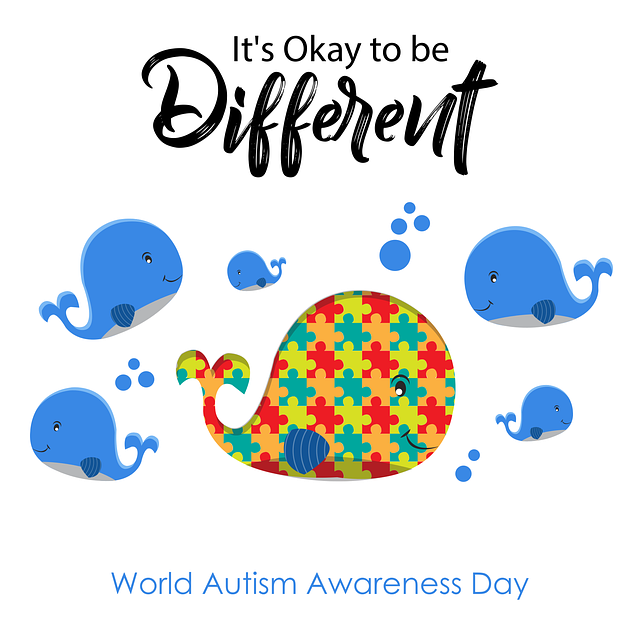
Image source: Freepik
Building Healthy Relationships with Loved Ones with Autism
World Autism Awareness Day is a significant day that highlights the importance of understanding and supporting individuals with autism spectrum disorder.
For individuals with autism, relationships with their loved ones are crucial for their overall well-being and development.
The American Psychiatric Association recognizes autism spectrum disorder as a neurodevelopmental disorder characterized by social communication and interaction challenges.
As such, individuals with autism may face unique obstacles when it comes to forming and maintaining relationships.
However, with the right strategies and support, it is possible to cultivate healthy and fulfilling relationships with individuals on the autism spectrum.
Understanding Autism Spectrum Disorder and an Autistic Person
Autism spectrum disorder (ASD) is a complex neurodevelopmental condition that affects individuals across a wide range of abilities and challenges.
An autistic person often experiences difficulties in social interaction, and communication, and may exhibit repetitive behaviours or have specific interests.
High-functioning autism, including Asperger syndrome, presents its own unique set of challenges and strengths within relationships.
Individuals with high-functioning autism often possess exceptional attention to detail, intense focus, and a deep knowledge of specific areas of interest.
However, they may struggle with social skills, flexible thinking, and managing sensory sensitivities. Autism affects relationships in various ways, both platonic and romantic.
Neurotypical individuals must educate themselves about the intricacies of autism spectrum disorder to foster understanding and empathy towards their autistic partners.
It is important to understand that autism is a spectrum, and each individual’s experience with it can vary greatly.
Understanding these challenges and strengths can help navigate the complexities of a romantic relationship with an autistic partner.
By acquiring knowledge about the condition, one can understand how the different types of autism affect relationships and how to build more meaningful connections with people with autism.
Ways to Create Meaningful Relationships
Building Effective Communication Skills
Effective communication is the cornerstone of any successful relationship. Developing strategies that accommodate the unique communication style of a person with autism becomes even more essential.
Here are some tips for building effective communication skills in relationships:
Collaborate on routines and structure
Autistic individuals often find comfort in routines and structure. Collaborate with your partner to create a routine that accommodates their needs while considering your preferences.
Embrace direct communication
Autistic individuals often appreciate direct and clear communication. Be explicit in expressing your thoughts and feelings, avoiding ambiguity or sarcasm.
Practice active listening
Show genuine interest and actively listen to your partner’s thoughts and emotions. Provide them with ample time to express themselves, and refrain from interrupting or assuming their perspective. An autistic person feels less adequate if they sense they are not appreciated.
Use visual supports
Visual aids, such as written notes or visual schedules, can help convey information and reduce misunderstandings.
Be patient and understanding
Recognize that your partner may need more time to process information or communicate their thoughts. Patience and understanding can go a long way in building trust and fostering open communication.
Understanding the Importance of Body Language and Non-Verbal Cues
While verbal communication is vital, it is equally important to understand and interpret the non-verbal cues of your autistic partner.
Physical aspects like body language, facial expressions, and tone of voice can provide valuable insights into their emotions and intentions.
However, autistic individuals may have difficulty grasping these social cues, leading to misinterpretations and potential conflicts.
To bridge this gap, it is crucial to communicate openly about non-verbal cues and establish clear signals within the relationship. This can involve discussing specific gestures or expressions that convey certain emotions or intentions to ensure successful relationships.
Common Challenges in Romantic Relationships
Romantic relationships with autistic individuals can present unique challenges. Communication differences often play a significant role in relationship dynamics.
Neurotypical people may rely on social cues, body language, and facial expressions to understand their partner’s emotions, whereas autistic individuals may struggle to interpret these non-verbal cues.
This can lead to misunderstandings and frustrations on both sides. In addition, sensory sensitivities, sensory issues and routines are common traits of autistic people that can affect relationships, romantic feelings, especially intimate relationships.
Nurturing Emotional Intimacy in Relationships with an Autistic Partner
Emotional intimacy is an essential aspect of any romantic relationship, and it holds for relationships with autistic adults as well.
However, navigating emotional intimacy can be challenging for autistic individuals due to difficulties in expressing and understanding emotions. Autistic participants in adult relationships may have a disconnect with their sexual knowledge versus their feelings. It is important for you and the romantic partner to both enjoy relationship satisfaction.
Here are some strategies for nurturing emotional intimacy in relationships with autistic adults:
Create a safe and non-judgmental space
Ensure that your partner feels safe and accepted when expressing their emotions. Avoid judgment and criticism, and foster an atmosphere of trust and understanding.
Encourage self-expression
Help your partner explore different ways to express their emotions. In this scenario, it is important to be attuned to the person’s life. This can include engaging in special interests and activities such as art, music, or writing that allow them to communicate their feelings in a comfortable and meaningful manner.
Practice empathy
Make an effort to understand your partner’s perspective and validate their emotions. Show empathy by actively listening, acknowledging their experiences, and offering support when needed.
Explore sensory-friendly activities
Engaging in sensory-friendly activities, such as walks in nature or quiet evenings at home, can create a soothing and intimate environment where both partners can connect on a deeper level.
Educate yourself about autism
Learn as much as you can about autism spectrum disorders to gain a deeper understanding of your partner’s experiences and challenges. This knowledge will help you navigate the relationship with empathy and compassion.
Seeking Professional Support and Resources for Building Meaningful Relationships
Building and maintaining meaningful relationships with autistic loved ones can be both rewarding and challenging.
It is essential to seek professional support and utilize available resources to enhance your understanding and relationship skills. Here are some resources you can explore:
Autism organizations: Reach out to autism organizations in your area for information, support groups, and workshops tailored to building relationships with autistic individuals.
Therapy and counselling: Consider seeking therapy or counselling services for yourself and your partner. A trained professional can provide guidance, strategies, and a safe space to explore relationship dynamics.
Books and literature: There are numerous books available that offer insights and practical advice on building relationships with autistic individuals. These resources can provide valuable knowledge and support.
Online communities: Engage with online communities and forums where individuals share their experiences and offer guidance. These communities can provide a sense of belonging and a platform to learn from others’ experiences.
Conclusion
As we celebrate World Autism Awareness Day, it is crucial to recognize the importance of understanding and acceptance in relationships with autistic individuals.
By acknowledging and embracing their unique strengths, challenges, and perspectives, we can foster meaningful connections and build stronger relationships.
Let us strive to create a society that values and celebrates the diversity of neurodivergent individuals, promoting empathy, understanding, and acceptance in all our relationships.

Check out our House and Lot for Sale Properties
Discover our house and lot for sale properties in the Philippines


